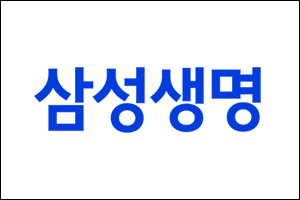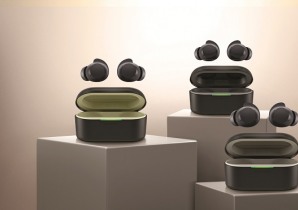
Researchers are conducting experiments related to biopharmaceuticals at Samsung Bioepis in Songdo, Yeonsu-gu, Incheon. / Photo = Samsung Bioepis
According to the relevant industry on the 10th, the 10th FDA-approved product in Korea is expected to be born in March next year. The main character is HLB's liver cancer new drug 'Riboceranib'. The company recently received a 'NAI (nothing to improve)' notice from the FDA during a clinical hospital on-site inspection. In May, the approval was denied due to the need for manufacturing facility improvement and BIMO inspection, but the possibility of FDA approval has been increased through this re-examination. The decision on whether to approve will be made by March 20 next year.
Han Yong-hae, Chief Technology Officer of HLB Group, said, "We have passed the important milestone for the approval of a new liver cancer drug, and Hangseo Pharmaceutical is making a company-wide effort for the final remaining CMC supplementary inspection."
If Riboceranib is approved, it will be the 10th FDA-approved new drug in Korea. The products approved by the FDA so far are ▲ LG Chem's 'Factive' in 2003, ▲ Dong-A ST's 'Sivextro' in 2014, ▲ SK Chemicals' 'Afstyla' in 2016, ▲ SK Biopharm's 'Sunosi' and 'Xcopri' in 2019, ▲ Hanmi Pharmaceutical's 'Rolontis' in 2022, ▲ Celltrion's 'Zimfentra' in 2023, and Yuhan Corporation's 'LECLAZA' in 2024.
It is not only 'Riboceranib' that is aiming for FDA approval. HK inno.N's 30th domestic new drug, 'K-CAB', a treatment for gastroesophageal reflux disease launched in 2019, is also considering FDA approval. 'K-CAB' is currently undergoing phase 3 clinical trials locally after successfully transferring technology to Braintree Laboratories in the US in 2021. The industry expects that 'K-CAB' will complete its FDA approval application by mid-next year at the latest.
Kolon TissueGene is also challenging the FDA with 'TG-C', a cell gene therapy for osteoarthritis. 'TG-C' completed phase 3 clinical trials in the US in July of this year.
There are also many new drug candidates that are expected to grow into blockbusters next year. The industry predicts that Yuhan Corporation's 'LECLAZA', Celltrion's 'Zimpentra', GC Green Cross's 'Aliglo', HK inno.N's 'K-CAB' and SK Biopharm's 'Xcopri' will generate annual sales of over KRW 1 trillion.
'LECLAZA' is a non-small cell lung cancer treatment that Yuhan Corporation exported its technology to Johnson & Johnson Innovative Medicine (Johnson & Johnson) in 2018 and received FDA approval this year. Anticancer new drugs are recognized as key technologies that change the paradigm of patient treatment and are considered one of the most important fields in the pharmaceutical market. If developed, the economic and industrial ripple effects will also be significant. Johnson & Johnson has set an annual sales target of 5 billion dollars (approximately KRW 7 trillion) for combination therapy. The industry expects Yuhan Corporation to become the first domestic pharmaceutical company to achieve KRW 2 trillion in sales through 'LECLAZA' royalties.
Celltrion's 'Zimfentra' is also a strong blockbuster candidate. Zimfentra's annual sales this year are around KRW 250 billion, but Celltrion Chairman Seo Jung-jin is confident that it will exceed 1 trillion won next year.Celltrion recently added Zympentra to all six public and private health plans operated by the top three U.S. prescription drug benefit managers (PBMs). The fact that it has been listed in six public and private insurance plans of the three major US PBMs in just seven months since its launch is considered unusual in the industry.
Also, GC Green Cross's 'Aliglo' is cruising since its entry into the US market in July. The company plans to generate sales of $50 million this year and grow by more than 50% annually. 'Aliglo' was listed on the formularies of three major US insurance companies in September and began full-scale patient administration. The company's sales target is also expected to be achieved in the second half of this year.
HK inno.N's 'K-CAB' recorded sales of KRW 88.9 billion in the first half of this year, up 67.3% from the same period last year. 'K-CAB' is a potassium-competitive acid secretion inhibitor (P-CAB) that complements the shortcomings of existing proton pump inhibitors (PPIs). The company is targeting annual sales of KRW 1 trillion by 2028.
SK Biopharm's epilepsy treatment 'Xcopri' is the first domestic new drug to receive FDA approval without technology transfer. Sales in the first half of this year were KRW 238.9 billion, up 77% from the same period last year. Since 'Xcopri' is currently undergoing clinical trials for generalized seizures and expanded indications for children, sales are expected to increase in the future.
The industry believes that next year could be a new momentum for the domestic pharmaceutical and biotechnology industry. An industry insider said, "In the early 2000s, many companies shifted their business models from focusing on generic drug sales to R&D-based ones," and "It seems that the results of this have recently come to the fore in the global market."
He continued, "Next year, domestic new drugs will leap forward to the stage of commercialization beyond development and production."
Kim Nayoung, Korea Finacial Times (steaming@fntimes.com)



























![[DQN] BNK금융, 비이자 성장 돋보였지만 지속성 고민…JB, 충당금에 ‘발목’](https://cfnimage.commutil.kr/phpwas/restmb_setimgmake.php?pp=006&w=69&h=45&m=5&simg=2026011913504200298b4a7c6999c121131189150.jpg&nmt=18)



![[DCM] CJ제일제당·삼양사·대한제당, 가격담합으로 부풀려진 신용등급](https://cfnimage.commutil.kr/phpwas/restmb_setimgmake.php?pp=006&w=69&h=45&m=5&simg=2026022013425808632a837df6494123820583.jpg&nmt=18)
![[DQN] NIM '개선' 하나은행, '사수' 우리은행···어떻게 다를까 [금융사 2025 리그테이블]](https://cfnimage.commutil.kr/phpwas/restmb_setimgmake.php?pp=006&w=69&h=45&m=5&simg=2026021919405809779b4a7c6999c121131189150.jpg&nmt=18)

![토스증권, 해외주식 신흥강자로 영업익 업계 9위 '우뚝' [금융사 2025 실적]](https://cfnimage.commutil.kr/phpwas/restmb_setimgmake.php?pp=006&w=69&h=45&m=5&simg=2026022015114702246179ad4390712813480118.jpg&nmt=18)












![[그래픽 뉴스] 워킹맘이 바꾼 금융생활](https://cfnimage.commutil.kr/phpwas/restmb_setimgmake.php?pp=006&w=298&h=298&m=1&simg=202602021638156443de68fcbb3512411124362_0.jpg&nmt=18)
![[그래픽 뉴스] 매파·비둘기부터 올빼미·오리까지, 통화정책 성향 읽는 법](https://cfnimage.commutil.kr/phpwas/restmb_setimgmake.php?pp=006&w=298&h=298&m=1&simg=202601281456119025de68fcbb3512411124362_0.jpg&nmt=18)
![[그래픽 뉴스] 하이퍼 인플레이션, 왜 월급이 종잇조각이 될까?](https://cfnimage.commutil.kr/phpwas/restmb_setimgmake.php?pp=006&w=298&h=298&m=1&simg=202601141153149784de68fcbb3512411124362_0.jpg&nmt=18)
![[그래픽 뉴스] 주식·채권·코인까지 다 오른다, 에브리싱 랠리란 무엇일까?](https://cfnimage.commutil.kr/phpwas/restmb_setimgmake.php?pp=006&w=298&h=298&m=1&simg=202601071630263763de68fcbb3512411124362_0.jpg&nmt=18)
![[그래픽 뉴스] “이거 모르고 지나치면 손해입니다… 2025 연말정산 핵심 정리”](https://cfnimage.commutil.kr/phpwas/restmb_setimgmake.php?pp=006&w=298&h=298&m=1&simg=202601061649137526de68fcbb3512411124362_0.jpg&nmt=18)
![[신간] 고수의 M&A 바이블](https://cfnimage.commutil.kr/phpwas/restmb_setimgmake.php?pp=006&w=81&h=123&m=5&simg=2025091008414900330f8caa4a5ce12411124362.jpg&nmt=18)
![[신간] 리빌딩 코리아 - 피크 코리아 극복을 위한 생산성 주도 성장 전략](https://cfnimage.commutil.kr/phpwas/restmb_setimgmake.php?pp=006&w=81&h=123&m=5&simg=2025032814555807705f8caa4a5ce12411124362.jpg&nmt=18)
![[서평] 추세 매매의 대가들...추세추종 투자전략의 대가 14인 인터뷰](https://cfnimage.commutil.kr/phpwas/restmb_setimgmake.php?pp=006&w=81&h=123&m=5&simg=2023102410444004986c1c16452b0175114235199.jpg&nmt=18)


![[신간] 이게 화낼 일인가?](https://cfnimage.commutil.kr/phpwas/restmb_setimgmake.php?pp=006&w=81&h=123&m=5&simg=2026010610254801367f8caa4a5ce12411124362.jpg&nmt=18)

![[AD] 현대차, 글로벌 안전평가 최고등급 달성 기념 EV 특별 프로모션](https://cfnimage.commutil.kr/phpwas/restmb_setimgmake.php?pp=006&w=89&h=45&m=1&simg=20260106160647050337492587736121125197123.jpg&nmt=18)
![[AD] 현대차 ‘모베드’, CES 2026 로보틱스 부문 최고혁신상 수상](https://cfnimage.commutil.kr/phpwas/restmb_setimgmake.php?pp=006&w=89&h=45&m=1&simg=20260105103413003717492587736121125197123.jpg&nmt=18)
![[AD] 기아 ‘PV5’, 최대 적재중량 1회 충전 693km 주행 기네스 신기록](https://cfnimage.commutil.kr/phpwas/restmb_setimgmake.php?pp=006&w=89&h=45&m=1&simg=20251105115215067287492587736121125197123.jpg&nmt=18)
![[카드뉴스] KT&G, 제조 부문 명장 선발, 기술 리더 중심 본원적 경쟁력 강화](https://cfnimage.commutil.kr/phpwas/restmb_setimgmake.php?pp=006&w=89&h=45&m=1&simg=202509241142445913de68fcbb3512411124362_0.png&nmt=18)
![[AD]‘황금연휴에 즐기세요’ 기아, ‘미리 추석 페스타’ 이벤트 실시](https://cfnimage.commutil.kr/phpwas/restmb_setimgmake.php?pp=006&w=89&h=45&m=1&simg=20250903093618029117492587736121166140186.jpg&nmt=18)



